
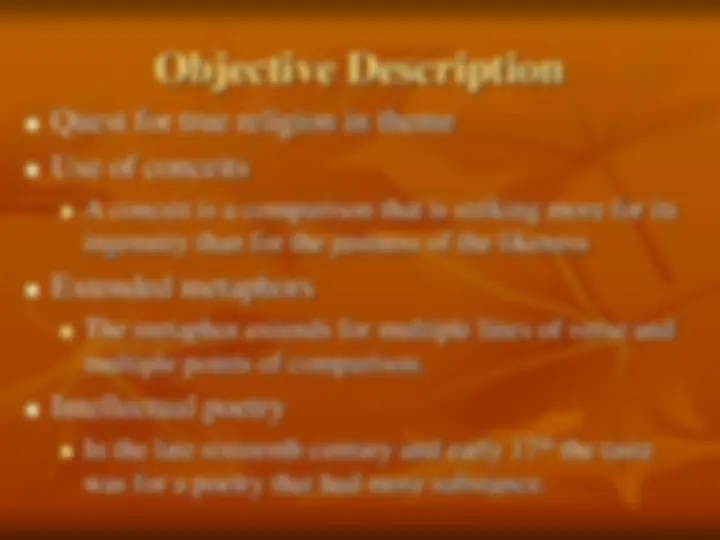
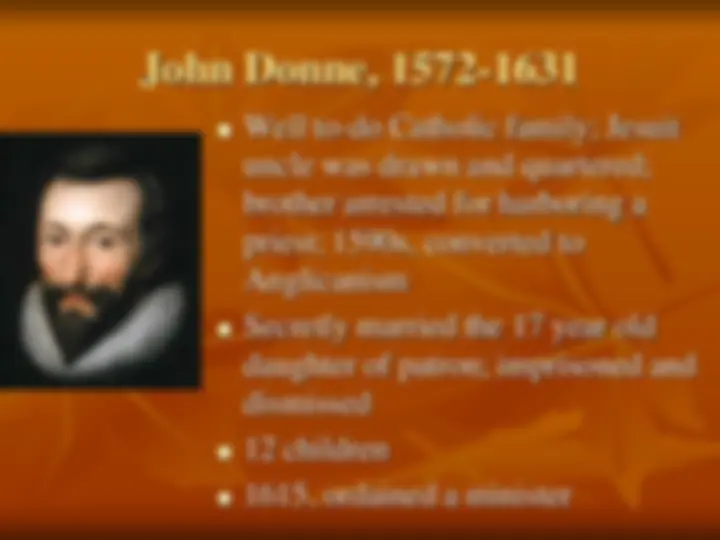
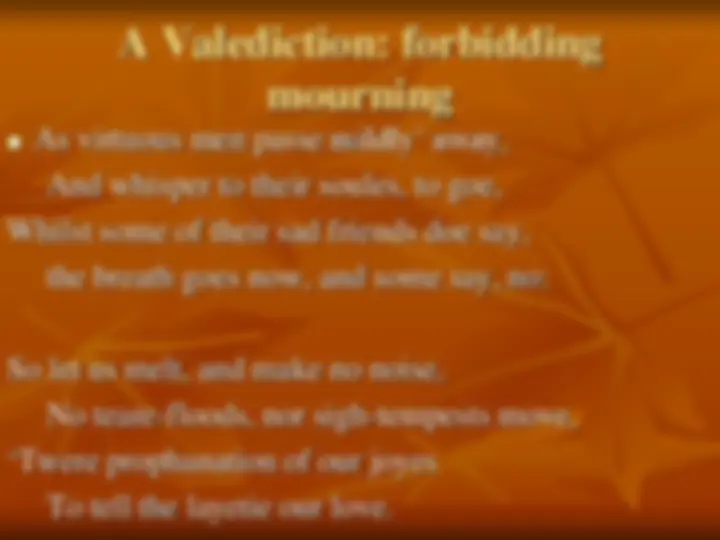
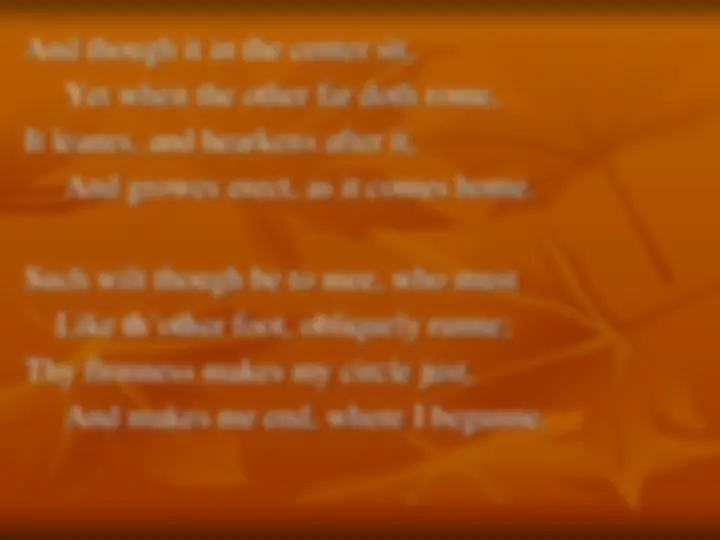
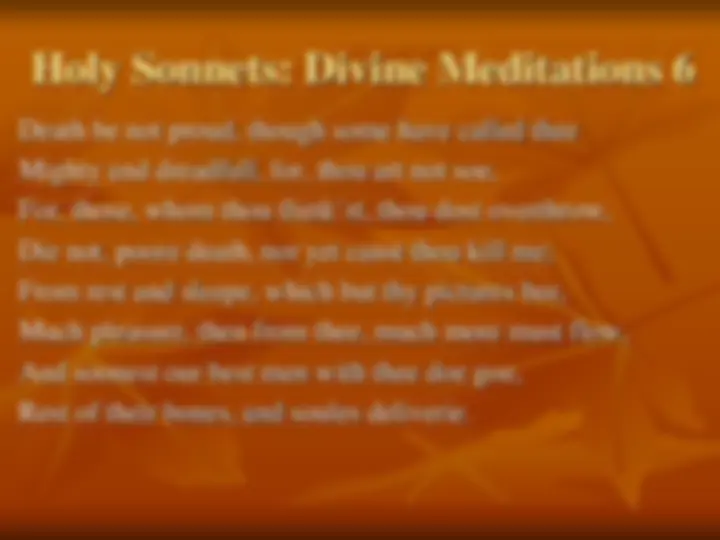
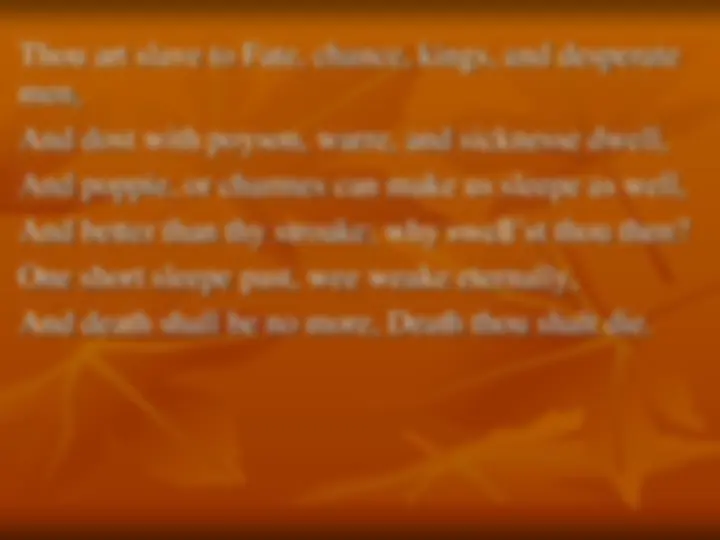
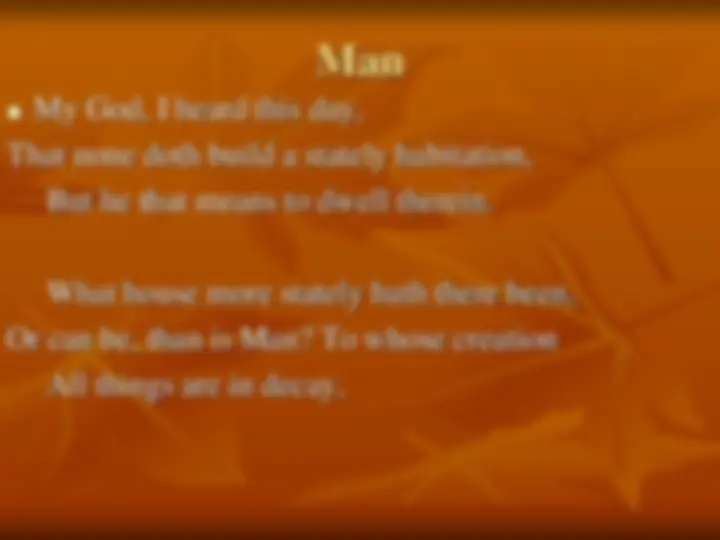
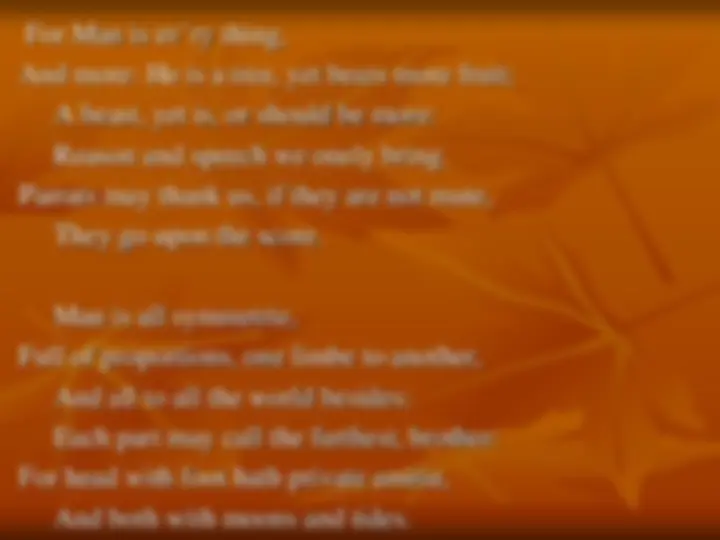
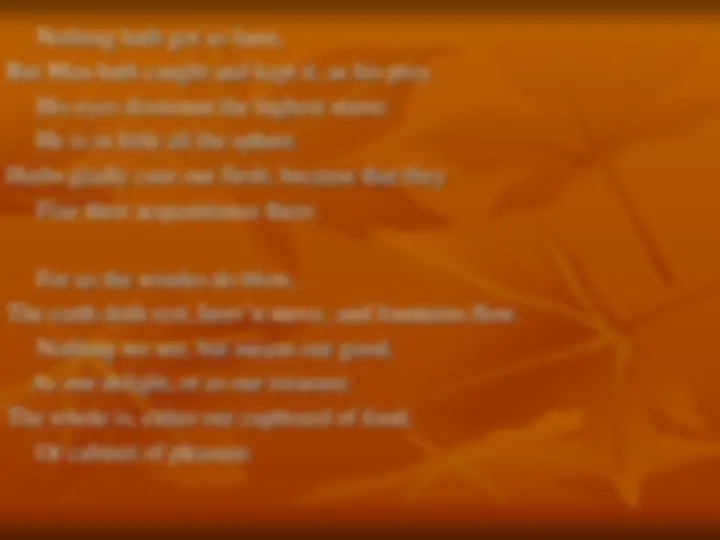
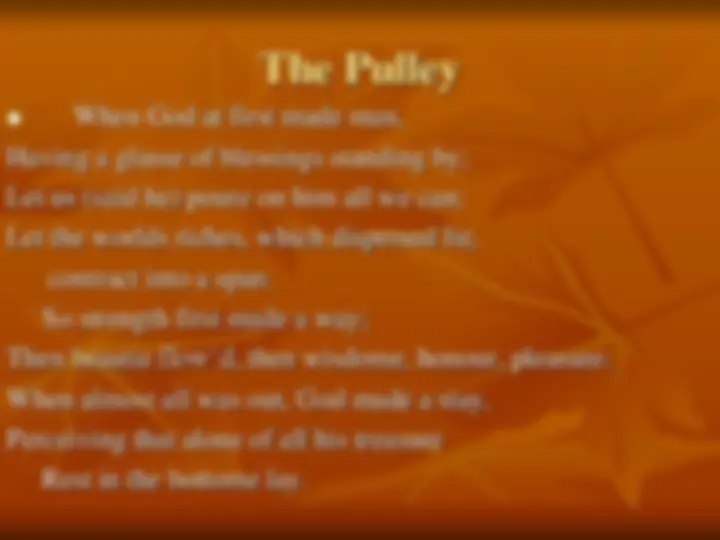
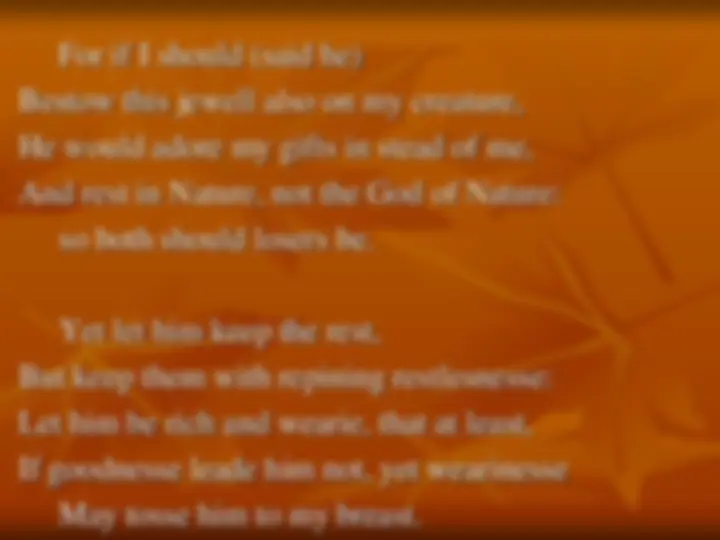
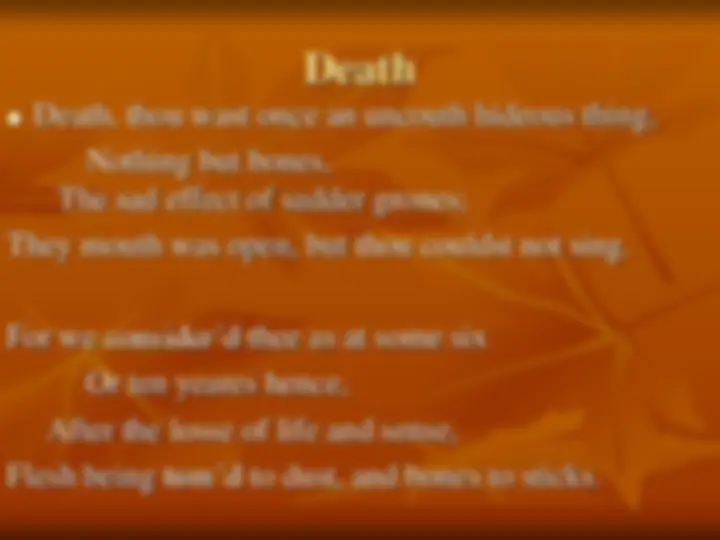
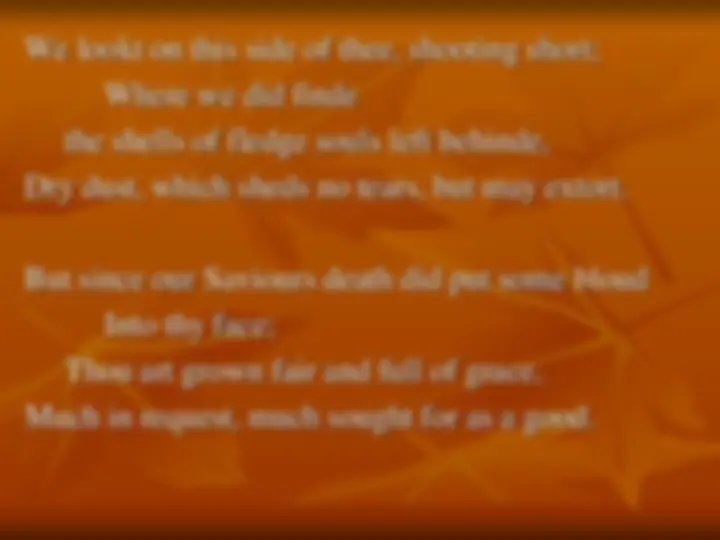
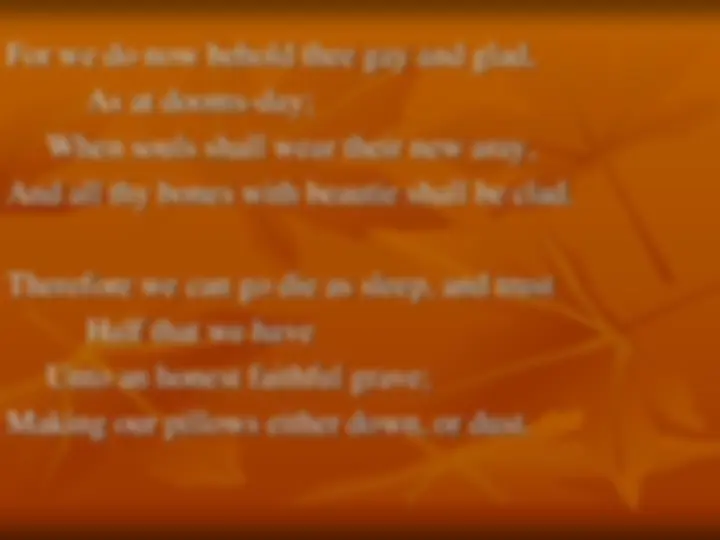
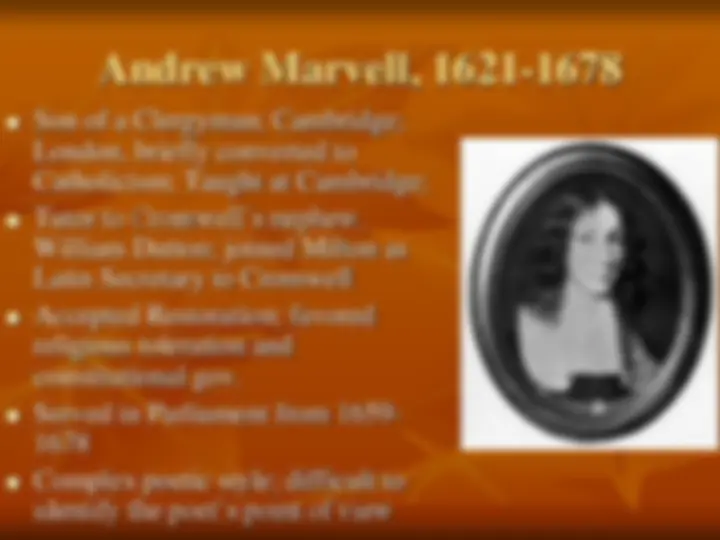
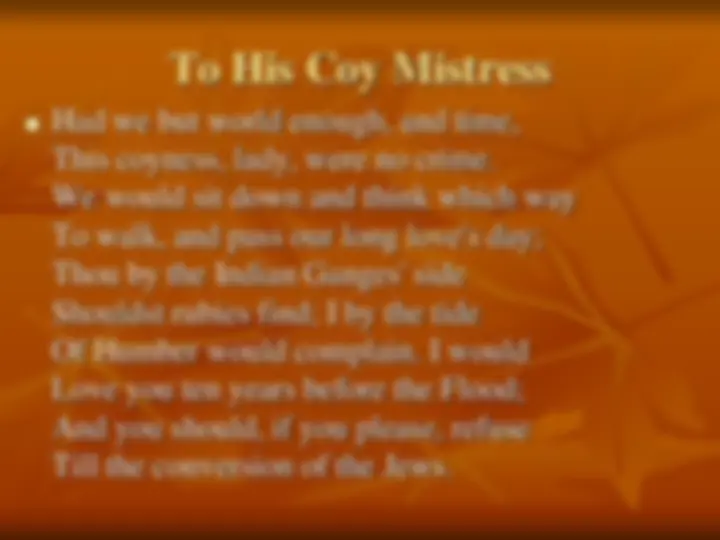
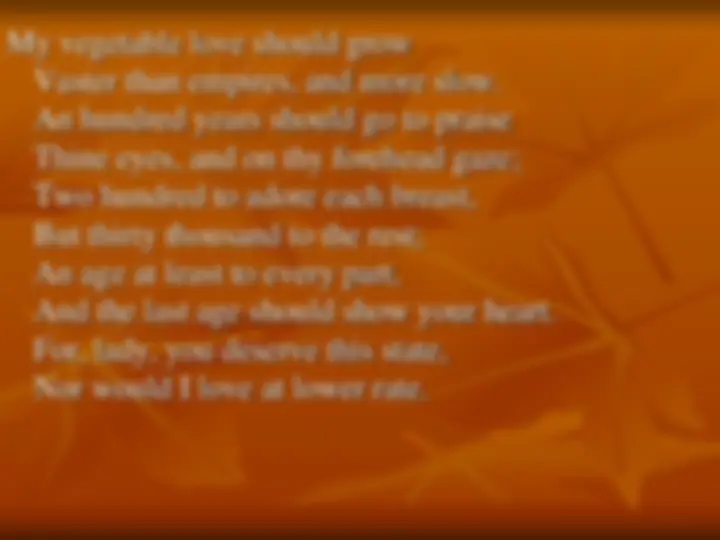
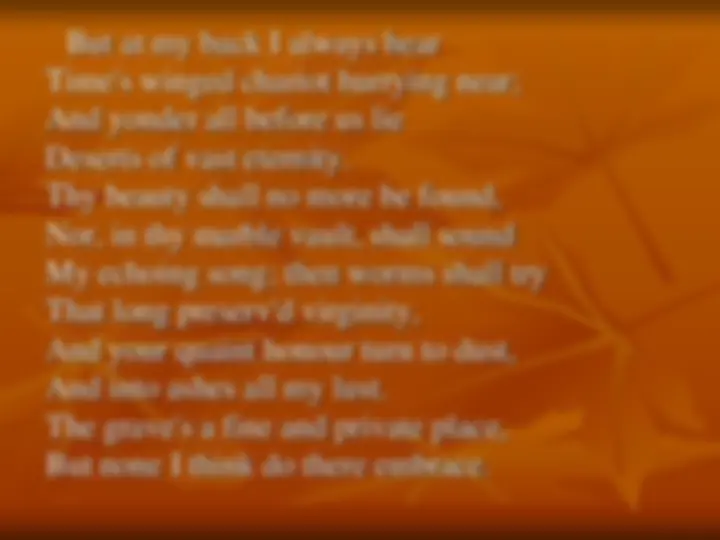
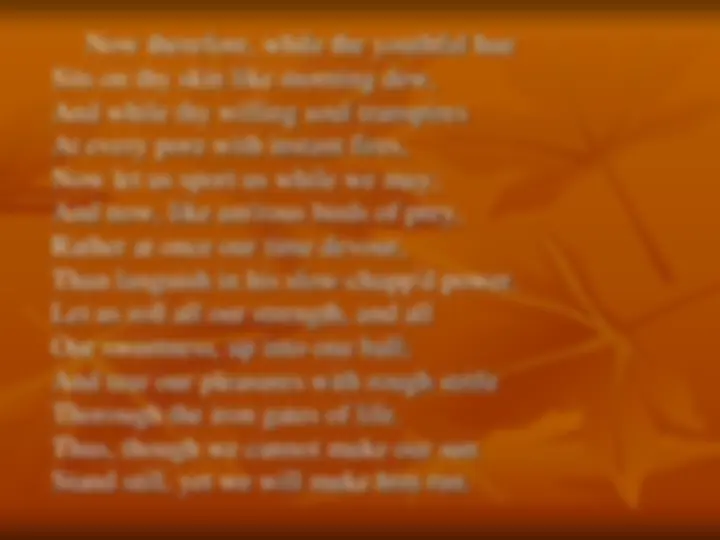
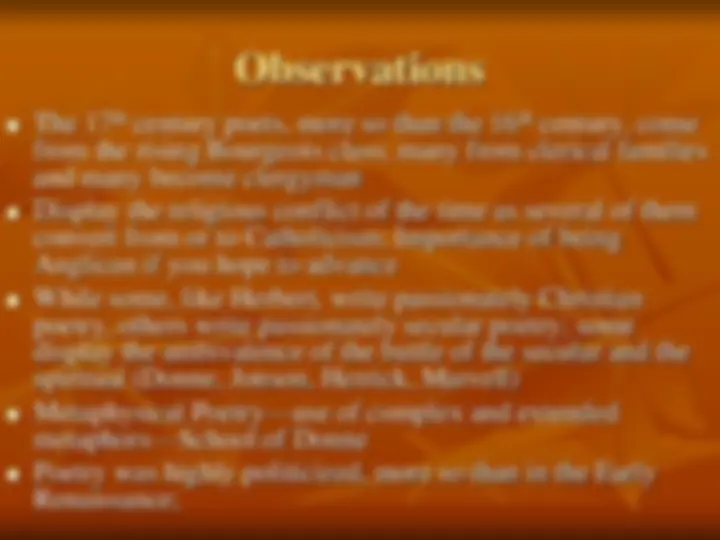


Study with the several resources on Docsity

Earn points by helping other students or get them with a premium plan


Prepare for your exams
Study with the several resources on Docsity

Earn points to download
Earn points by helping other students or get them with a premium plan
Community
Ask the community for help and clear up your study doubts
Discover the best universities in your country according to Docsity users
Free resources
Download our free guides on studying techniques, anxiety management strategies, and thesis advice from Docsity tutors
This document delves into the world of Metaphysical Poetry from the 17th century, a literary movement characterized by its intellectual depth and exploration of faith. Discover the lives and works of poets like John Donne, George Herbert, and Andrew Marvell, and learn about the use of conceits, extended metaphors, and the quest for true religion in their poetry.
Typology: Lecture notes
1 / 28

This page cannot be seen from the preview
Don't miss anything!





















Dr. Alan Haffa
Term coined by Samuel Johnson in 18th^ century
John Dryden had used it to described John Donne: “He affects the metaphysics, not only in his satires, but in his amorous verses, where nature only should reign; and perplexes the minds of the fair sex with nice speculations of philosophy, when he should engage their hearts, and entertain them with the softnesses of love.”
Well to-do Catholic family; Jesuit uncle was drawn and quartered; brother arrested for harboring a priest; 1590s, converted to Anglicanism Secretly married the 17 year old daughter of patron; imprisoned and dismissed 12 children 1615, ordained a minister
As virtuous men passe mildly‟ away,
And whisper to their soules, to goe,
Whilst some of their sad friends doe say,
the breath goes now, and some say, no:
So let us melt, and make no noise,
No teare-floods, nor sigh-tempests move,
„Twere prophanation of our joyes
To tell the layetie our love.
Our two soules therefore, which are one,
Though I must goe, endure not yet
A breach, but an expansion,
Like a gold to ayery thinnesse beate.
If they be two, they are two so
As stiffe twin compasses are two,
Thy soule the fixt foot, makes no show
To move, but doth, if the‟other doe.
.
And though it in the center sit,
Yet when the other far doth rome,
It leanes, and hearkens after it,
And growes erect, as it comes home.
Such wilt though be to mee, who must
Like th‟other foot, obliquely runne;
Thy firmness makes my circle just,
And makes me end, where I begunne.
Thou art slave to Fate, chance, kings, and desperate men,
And dost with poyson, warre, and sicknesse dwell,
And poppie, or charmes can make us sleepe as well,
And better than thy stroake; why swell‟st thou then?
One short sleepe past, wee weake eternally,
And death shall be no more, Death thou shalt die.
Since she whom I lov‟d, hath payd her last debt To Nature, and to hers, and my good is dead, And her soule early into heaven ravishèd, Wholy in heavenly things my mind is sett. Here the admyring her my mind did whett To seek thee, God; so streames do shew the head; But though I have found thee, and thou my thirst hast fed, A holy thirsty dropsy melts me yet. But why should I begg more love, when as thou Dost wooe my soul, for hers offring all thine: And dost not only fear lest I allow My love to saints and Angels, things divine, But in thy tender jealousy dost doubt Lest the World, flesh, yea, Devil put thee out.
My God, I heard this day,
That none doth build a stately habitation,
But he that means to dwell therein.
What house more stately hath there been,
Or can be, than is Man? To whose creation
All things are in decay,
For Man is ev‟ry thing,
And more: He is a tree, yet bears more fruit;
A beast, yet is, or should be more: Reason and speech we onely bring.
Parrats may thank us, if they are not mute,
They go upon the score.
Man is all symmetrie,
Full of proportions, one limbe to another,
And all to all the world besides: Each part may call the furthest, brother:
For head with foot hath private amitie,
And both with moons and tides.
The starres have us to bed; Night draws the curtain, which the sunne withdraws; Musick and light attend our head. All things unto our flesh are kinde In their descent and being; to our minde In their ascent and cause.
Each thing is full of dutie: Than he‟l take notice of: in ev‟ry path He treads down that which doth befriend him, When sicknesse makes him pale and wan. Oh mightie love! Man is one world, and hath Another to attend him.
Since then, my God, thou hast
So brave a Palace built; O dwell in it,
That it may dwell with thee at last! Til then, afford us so much wit;
That, as the world serves us, we may serve thee,
And both thy servants be.
For if I should (said he)
Bestow this jewell also on my creature,
He would adore my gifts in stead of me,
And rest in Nature, not the God of Nature:
so both should losers be.
Yet let him keep the rest,
But keep them with repining restlesnesse:
Let him be rich and wearie, that at least,
If goodnesse leade him not, yet wearinesse
May tosse him to my breast.
Death, thou wast once an uncouth hideous thing,
Nothing but bones, The sad effect of sadder grones;
They mouth was open, but thou couldst not sing.
For we consider‟d thee as at some six
Or ten yeares hence, After the losse of life and sense,
Flesh being turn‟d to dust, and bones to sticks.